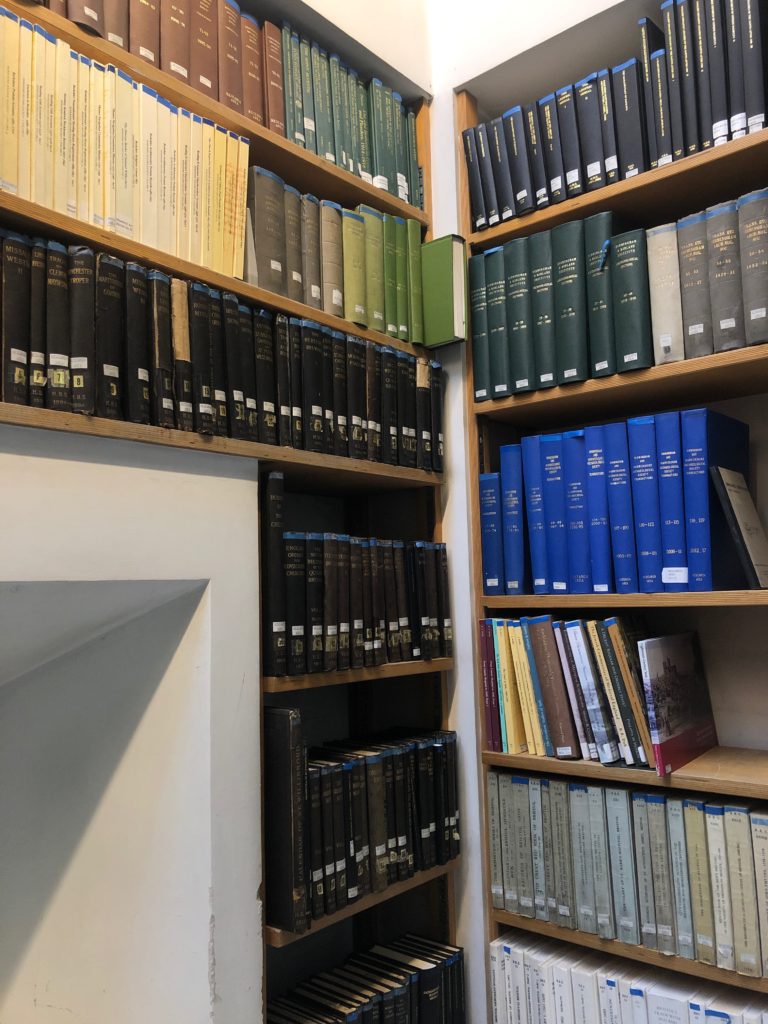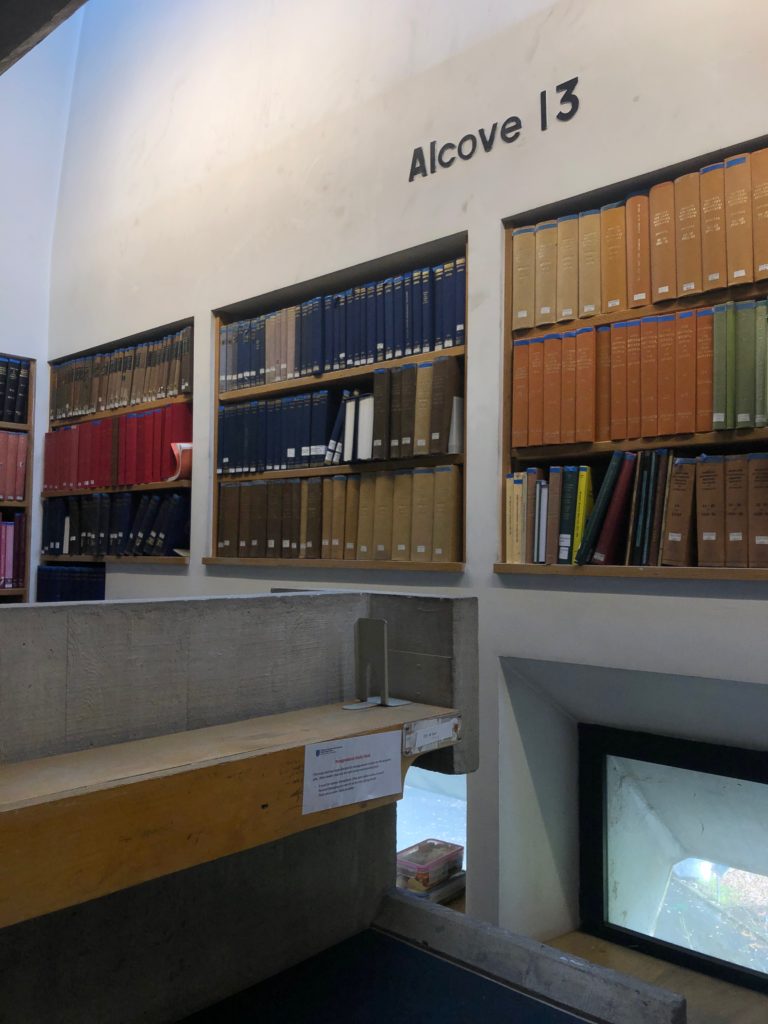With just a month left to go in my fall term at Trinity, I realized I’d missed an entire library at Trinity. I do not know what I had previously figured was the source of the “B” in BLU Complex, the trinity of Trinity libraries whose names I can now effortlessly rattle off: Berkeley, Lecky and Ussher. I don’t know to which corner of my mind I relegated the comment about Berkeley’s trademark austere aesthetic the librarian made at the introduction to Trinity’s library complex. Nor do I know why I did not bother to seek a third wing of demarcated austerity after locating the first two un-austere wings. On reflection, I recognize I may have had going a low-effort cognitive process, the kind of puzzlement you don’t consciously register yourself as having, attempting to match a sufficiently austere patch of the library to her description.
In my defense, the three libraries—which adjoin at a central atrium, giving them the feel of one large library—have no prominent labels to indicate their boundaries. The atrium inspires all the feelings of a high-stakes trust fall: you must simply walk through passageways on faith that they will take you somewhere. You enter at a turnstile, go down a staircase, and for some reason, are promptly confronted with an upwards staircase of the same height, undoing the work you accomplished with the first staircase. After you ascend, to your north is the library I now know to be the Ussher: rows of stacks on one side and rows of desks on the other, with an atrium in the middle and windows all along the side. To your right is the library known as the Lecky. Passage to the Arts Block can be made through this minefield of pewter blue metal study desks and kindergarten classroom carpentry.
Other than those two libraries, there’s no obvious place to go from the main atrium, the Berkeley apparently missing. One day, though, I noticed that before the self-cancelling staircases is another staircase, directly to the right of the turnstiles when you enter. Anticipating the revision of my mental model to come, I ascended the stairs, passing a sign that says “Silence is Requested” tiled onto the staircase on my way. When I emerged, I didn’t need to be told to silence myself—my surprise at what I found took care of speechlessness for me.
I do not know if I love the Berkeley library, exactly. But I am intrigued by it and its “austerity.” Berkeley makes me feel like a knowledge astronaut. It is brutalist, which I don’t usually go for, but in the best way, with a retro-space station feeling to it. It evokes placelessness; when you are there, the world eerily condenses to your book and you.
My attraction to Berkeley is no doubt equally for what it represents to me as what it is. Missing the existence of the Berkeley Library was just the kind of mistake that characterized my last semester at Trinity—the kind of mistake that keeps you constantly on your feet and curious about what might be waiting at the end of every staircase.
My last year at Columbia was like watching a movie you’ve watched a lot before: You don’t exactly know the next line by heart, but when it’s spoken you feel as if you’re speaking along with it. Over my first semester at Trinity, by contrast, I was constantly struck by the inapplicability of my yardstick, although I don’t know what I expected to do with a yardstick in a country on the metric system. Everything was a mystery to me. Where do I buy towels? How does the microwave work? How about societies? Where’s the best place to get a quick lunch? Does this school have a meme group? How do I get mail? These curiosities were initially dictated by my needs, but they soon came to arise without prompting, the same way I remember them arising when I was new to Columbia and curious about everything: who are the paintings of? What’s the full story behind the little fun facts I hear from the tour guides that stop outside my window? Is the Berkeley Library up those stairs?
Adjusting to Ireland, like adjusting to Trinity, has provoked these curiosities and confusions, too. I like the small mix ups and embarrassments that remind you that things can be done a different way from the way you’re used to: from my flatmates’ endless confusion at my using the word “rag” instead of “tea-towel” to all the times I’ve tried to stick my chargers in plugs without an adapter.
I know my process of acquaintance will likely peter out this upcoming term. I realized that I’d exchanged my yardstick for a meterstick when I caught myself ordering a “filter coffee” yesterday in New York City. But repetition, like acquaintance, is a unique mode of experience, and one I look forward to bearing out in a new context. As I continue to visit it next term, the placeless Berkeley will turn into a place: the place where I read that book, wrote that paper, and thought that thought. It will be a place where silence is requested not because a new experience demanded speechlessness, but because I already knew the words to the script, and I just got to mouth along.



